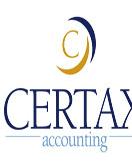If you have a business and you have employee, you as an employer you need to operate PAYE as part as your payroll. HMRC collects National Insurance and Income Tax using the PAYE system. If any of your employees are getting paid £122 or less a week, have another job or got a pension or get expenses and benefits then you won’t need to register for PAYE but you must keep their payroll records.
You will need to give your employees payments such as wages or salaries as well as any bonuses or tips that they have been given, maternity pay or statutory sick pay. From these payments, you will need to deduct National Insurance from most of the employees and if they have any student loans, they will need to repay them or pension contributions.
You will need to report your employee’s payments and deductions to HMRC before each payday if you run the payroll yourself. The payroll software will work out how much National Insurance and tax that you will owe, including an employer’s National Insurance contribution on each employee’s earnings above £155 a week. You will need to send another report to claim any reduction on what you owe HMRC, for example statutory pay.
Paying HMRC, you will be able to see what you owe them based on the reports that you have made. You will have to pay them every month.
Also, you will need to report to HMRC when a new employee joins and if any employee’s circumstances changes, such as becoming a director or they have reached the State Pension age. At the end of each tax year you will have to run an annual report, telling HMRC about any benefits or expense.
You can operate PAYE by either:
- Doing it yourself using payroll software
- Paying a payroll provider to do it for you
You are responsible for keeping records and collecting details of your employees. Your payroll provider (if that’s a bureau or an accountant, depending how much support you will need) will need to run these through the payroll. As an employer, you are legally responsible for completing all PAYE tasks, even if you pay someone else to do them for you.
You may be exempt from reporting payroll online if:
- You’re getting care or support services for yourself or a member of your family
- You’re unable to send reports electronically because you’re disabled, elderly or can’t access the internet
- You’re prevented from using a computer on religious grounds
Setting up payroll
- Register as an employer with HMRC and get a login for PAYE Online
- Choose payroll software to record employee’s details, calculate pay and deductions and report to HMRC
- Collect and keep records
- Tell HMRC about your employees
- Record pay, make deductions and report to HMRC on or before the first payday.
- Pay HMRC the tax and National Insurance
You must keep records off:
- Tax codes notices
- Reports and payments you make to HMRC
- Payroll Giving scheme documents, including the agency contract and employee authorisation forms
- What you pay your employees and the deductions you make
- Taxable benefits or expenses
- Employee leave and sickness absences
You must keep the records for 3 years from the end of the tax year they relate to and to make sure that they are accurate. If you have lost, stolen or destroyed the records, then you will need to tell HMRC as soon as possible.
You must tell HMRC if your final payroll report of the tax year includes figure that are:
- Provisional – that you’ll update later with actual figure
- Estimated – that you want HMRC to accept as final

